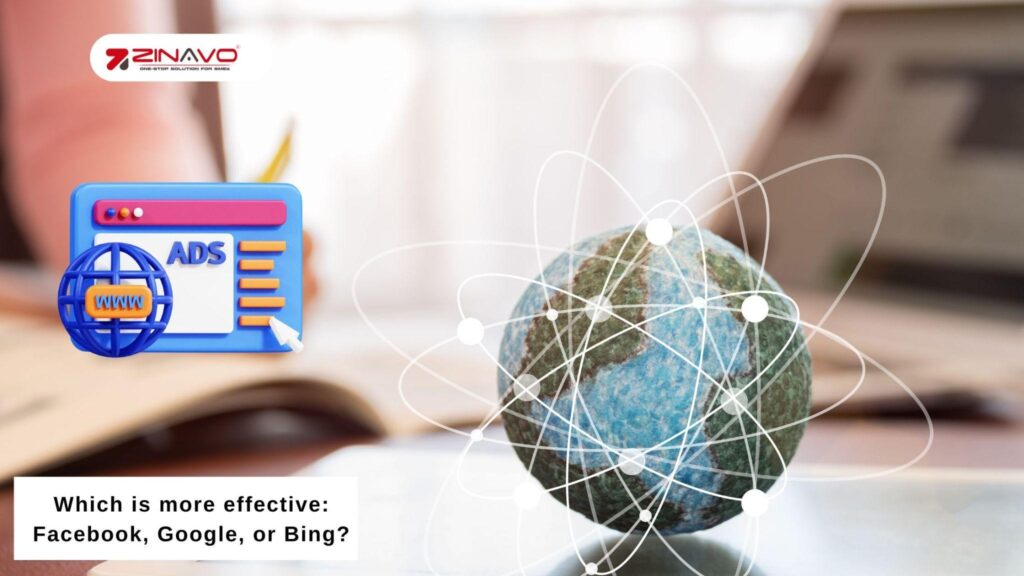Which is more effective: Facebook, Google, or Bing?
Introduction:
One of the most powerful ways to grow a business is through online advertising. Digital advertising is dominated by three major platforms: Facebook Ads, Google Ads, and Bing Ads. Each platform has its unique strengths, but which is the most effective? To determine the best answer, you need to consider your business goals, your budget, and your target audience.
In this blog, we will compare these three advertising giants, analyze their features, and help you decide which is best for your marketing strategy.
1. Overview of Each Advertising Platform
Facebook Ads
Facebook Ads operate on the Meta advertising network, which includes Facebook, Instagram, Messenger, and the Audience Network. These ads are excellent for businesses looking to build brand awareness, generate leads, or retarget existing customers.
Google Ads
- Use analytics tools to study customer behavior.
- Create buyer personas to identify your audience.
- Track website visits, email interactions, and purchase history.
Bing Ads
Bing Ads run on Microsoft Advertising and appear on Bing, Yahoo, and AOL search engines. While Bing has a smaller market share than Google, it can be a cost-effective option with less competition.
2. Key Differences – Facebook vs. Google vs. Bing Ads
The table below highlights the major differences between these advertising platforms:
| Feature | Facebook Ads | Google Ads | Bing Ads |
| Ad Placement | Facebook, Instagram, Messenger, Audience Network | Google Search, YouTube, Display Network, Gmail | Bing, Yahoo, AOL |
| Targeting Type | Demographic & Interest-based targeting | Keyword-based targeting | Keyword-based targeting |
| Best For | Brand awareness, lead generation, retargeting | High-intent searches, direct sales, local services | Cost-effective advertising, older audience |
| Ad Format | Image, video, carousel, slideshow, stories | Search ads, display ads, shopping ads, video ads | Search ads, shopping ads, display ads |
| Conversion Rate | 1%-2% (depends on engagement) | 3%-5% (high-intent users) | 2%-3% |
| Audience Reach | 3 billion+ users | 8.5 billion searches/day | 1 billion searches/month |
3. Advantages and disadvantages of each platform
Facebook Ads
✅ Pros:
- Best for audience targeting based on interests and behaviors
- Engaging ad formats (videos, carousels, stories)
- Excellent for brand awareness and retargeting
❌ Cons:
- Lower conversion rate compared to search ads
- Requires engaging creatives for better performance
Google Ads
✅ Pros:
- Covers both search and display networks
- Best for businesses targeting direct conversions
❌ Cons:
- Expensive for competitive industries
- Requires keyword research and optimization
Bing Ads
✅ Pros:
- Lower CPC compared to Google Ads
- Reaches older, more financially stable users
- Less competition in bidding
❌ Cons:
- Smaller audience size than Google
- Limited ad placements compared to Facebook and Google
4. Which Advertising Platform is Best for Your Business?
- For Brand Awareness & Social Engagement: → Facebook Ads
- For High-Intent Conversions & E-commerce Sales: → Google Ads
- For Low-Cost Advertising with an Older Audience: → Bing Ads
Conclusion
There is no single winner in the Facebook vs. Google vs. Bing Ads race. Each platform has unique advantages based on your business needs and budget.
Before choosing a platform, test different ad strategies, analyze performance, and invest in the one that gives the best ROI for your business.



